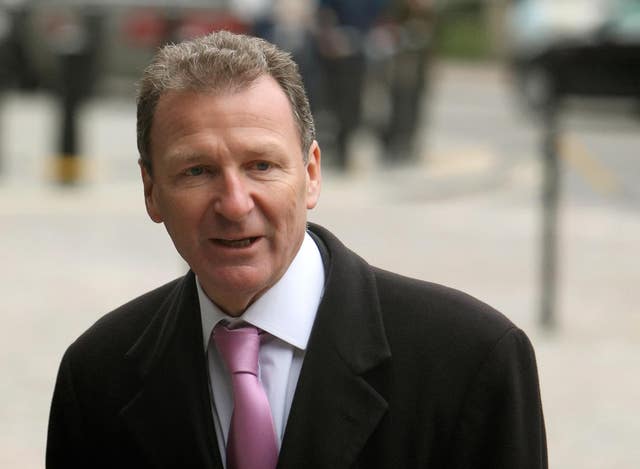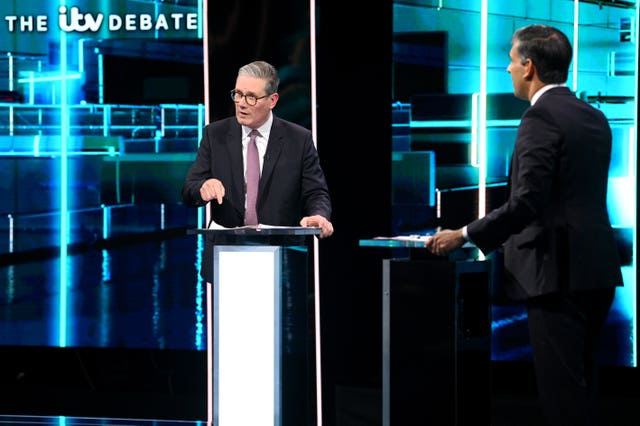Opposition policy costings ‘one of grubbiest’ Whitehall processes – ex-mandarin
Lord Gus O’Donnell called on ministers to stop asking civil servants to tot up their rival parties’ policy proposals.

Opposition policy costings are among the “grubbiest processes” in Whitehall, a former top mandarin has claimed.
Lord Gus O’Donnell has called on ministers to stop asking civil servants to tot up their rival parties’ policy proposals.
His appeal followed a row over a Tory attack line – that Labour would raise taxes by £2,000 per household over four years – which ministers, including Prime Minister Rishi Sunak, have claimed is based on costings by HM Treasury.
Speaking to BBC Radio 4’s World At One, Lord O’Donnell described opposition policy costing exercises as “an attempt by politicians … to buy credibility from the Civil Service, because the Civil Service is required in its everyday work to be honest and objective”.
The crossbench peer, who was permanent secretary for the Treasury before he became cabinet secretary, the most senior civil servant, until 2011, said: “Ministers tell you to produce these costings on some assumptions they give you, which are dodgy assumptions designed to make the policy look as bad as possible.”
He added: “(Opposition policy costing exercises) to be honest are one of the grubbiest processes I’ve ever been involved in, and I hope to goodness that a future government will stop doing this because they’re done by both parties, right? Conservative and Labour have done them, I’ve done them – many of these during my career.

Labour’s shadow attorney general Emily Thornberry said the row had “so undermined the office of prime minister” after Mr Sunak said on ITV that “independent Treasury officials” had costed Labour’s policies “and that they amounted to a £2,000 tax rise for everyone”.
Ms Thornberry said the next government should scrap opposition policy costing exercises, where special advisers supplied civil servants with “assumptions” and asked them to calculate the cost of their rivals’ policies.
She accused special advisers of making assumptions about policies which were already accounted for in current spending, in particular a live Government scheme to issue “golden hello” bonus payments to new dentists which Labour has previously supported, as part of its wider campaign for 700,000 new dentist appointments each year.
Shadow paymaster general Jonathan Ashworth told LBC this morning that the Conservatives “have been caught red-handed lying to the British public” by claiming the figures came from “independent” officials.

Mr Mitchell said: “I don’t believe that either side is lying on this.”
The Conservative minister added: “We have costed through Treasury-validated figures but in addition to that through other independent sources – ie non-Conservative sources – how much Labour’s tax rises would be over the period of a parliament and we’ve come to the figure of £2,094.”
Mr Mitchell said: “I don’t think we would end the process (of opposition policy costings) and I don’t think Labour would either.”
Alex Thomas, of the Institute for Government think tank, told the PA news agency: “Opposition costings are generally a bad idea. They can result in civil servants being put in the middle of a political row, as we have seen.”
He added: “Civil servants are impartial but by definition they are not independent – they operate under ministerial instruction.”
Both Labour and the Conservatives are yet to publish their General Election manifestos in full.
The Conservatives have claimed Labour’s fiscal plans would leave the UK government with a £38 billion spending black hole, while Labour has costed the Conservatives’ unfunded spending at £71 billion.
Lord O’Donnell said an alternative process to Government opposition policy costing exercises was “for parties to come up with their manifestos and for proper, independent think tanks to then put the costings together”.





